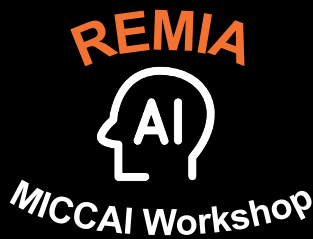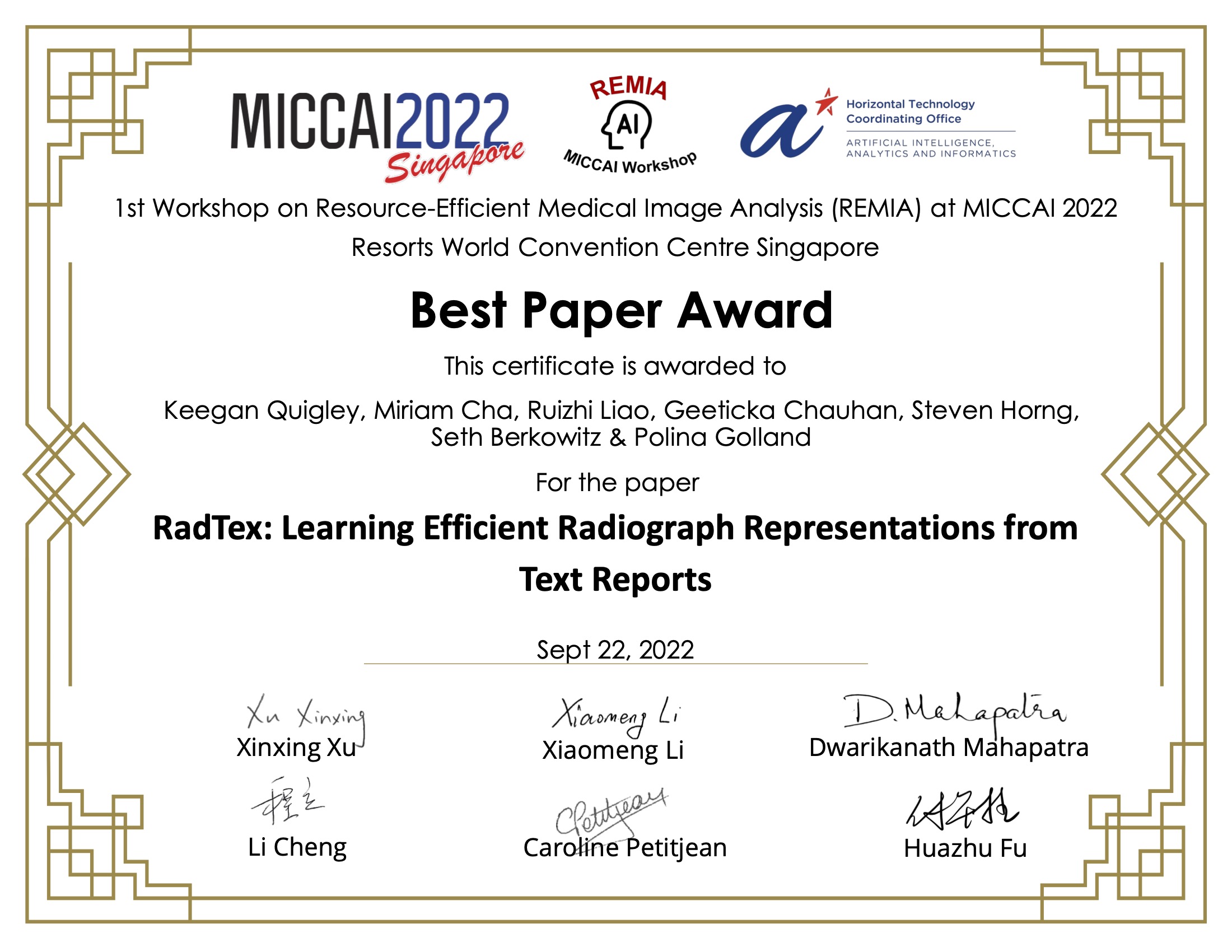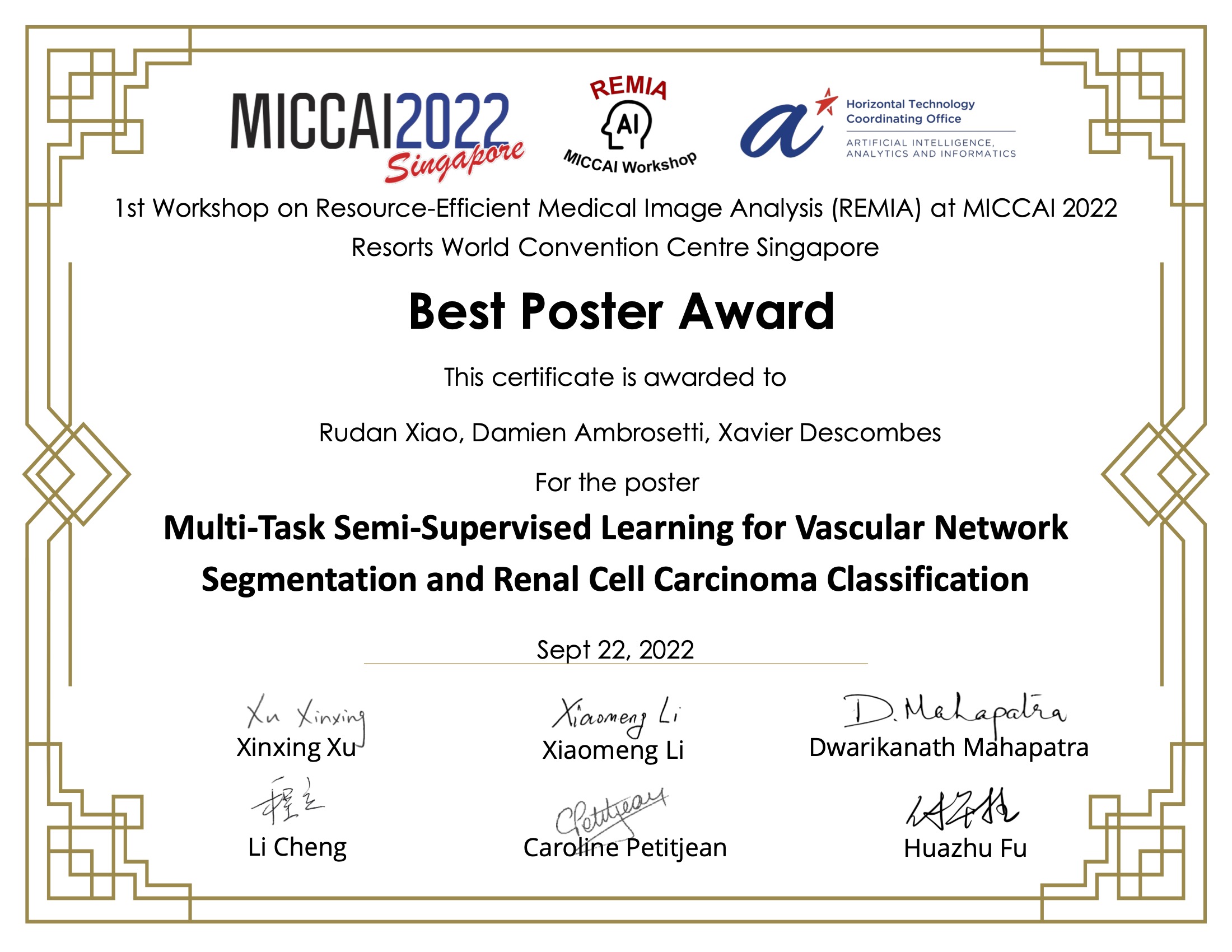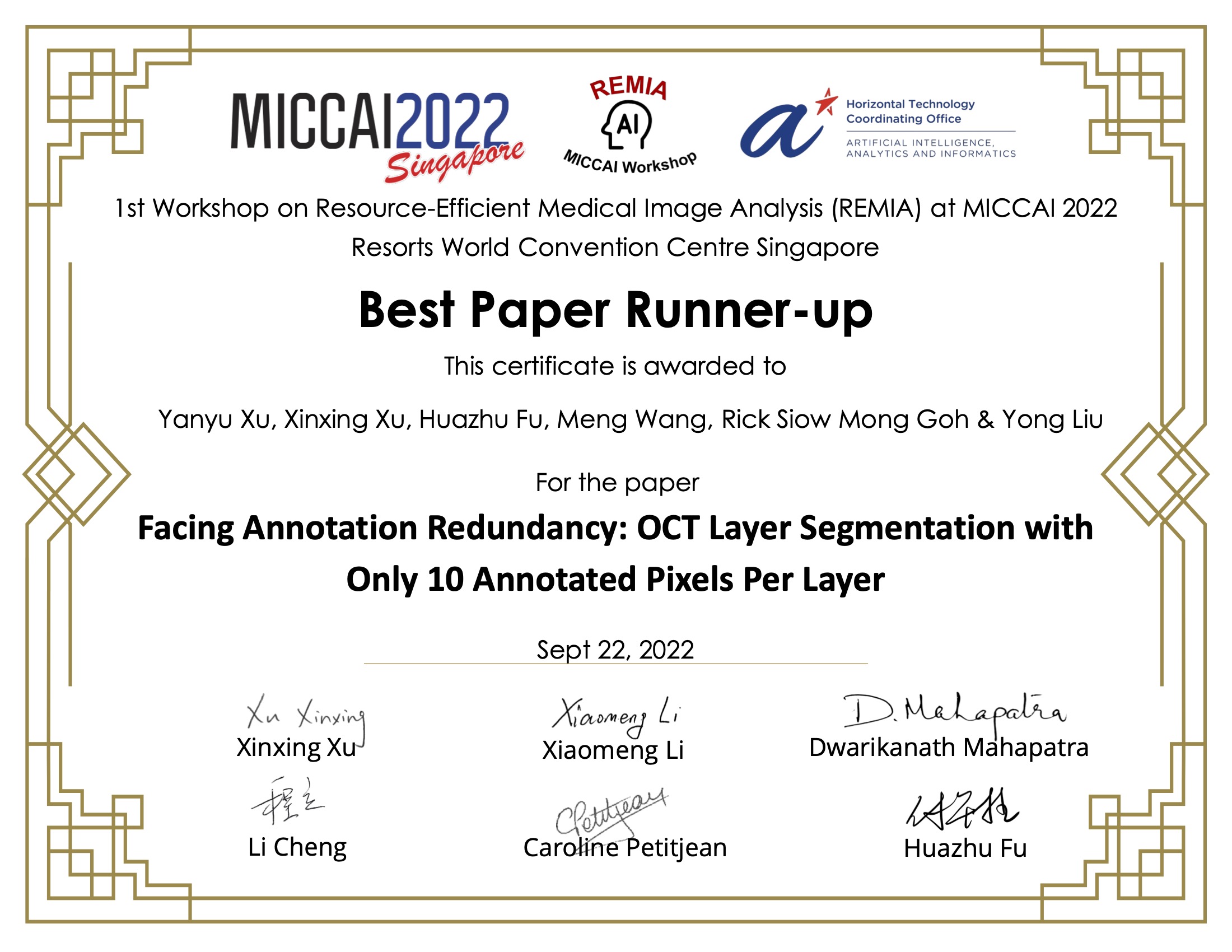

Deep learning methods have shown remarkable success in many medical imaging tasks over the past few years. However, there exists a challenge that current deep learning models are usually data-hungry, requiring massive amounts of high-quality annotated data to achieve high performance.
Firstly, collecting large scale medical imaging datasets is usually expensive and time-consuming, and the regulatory and governance also raise additional challenges for practical healthcare applications. Moreover, the domain shifts in medical data caused by factors such as different medical devices, different subject cohorts and different scanning configurations and conditions have been challenging for deploying the AI models for real-world applications. Secondly, acquiring the data annotations is even more of a challenge as the experienced and knowledgeable clinicians are required to provide high quality annotations. The annotation process is labour-intensive and time-consuming when it comes to the segmentation tasks, especially for 3D medical data, such as CT, OCT and MRI scans etc.. Minutes to hours may be required for the clinicians to annotate single image, given the complexity of the segmentation tasks. Thirdly, it is infeasible to deploy large deep learning models to edge devices for various medical tasks within a low-resource situation, especially with hardware constraints for practical clinical applications in the era of Telehealth and Metaverse.
The vanilla deep learning models usually have limited ability of learning from sparse training samples. Consequently, to enable efficient and practical deep learning models for medical imaging, there is a need for research methods that can handle limited number of training data, limited labels and limited hardware constraints when deploying the model. To address the limited data challenge, recent methods related to data efficiency such as transfer learning, domain adaptation that can mitigate the domain shifts problem in medical imaging have been proposed in medical image analysis field. Besides, label efficiency methods such as partially-supervised learning, annotation-efficient learning and weakly supervised learning methods including semi-supervised, unsupervised, self-supervised as well as contrastive learning have been widely studied in this field including recent published work in MICCAI conferences etc. However, hardware efficiency related topics such as neural network compression, neural architecture search, etc has not been fully explored in the field. Therefore, in this workshop, we will encourage submissions on this topic to discuss the potential research problems raised by hardware efficiency, preparing for more AI applications for Metaverse and Telemedicine.
We propose the below research topics from data, annotation and hardware perspectives for medical image analysis. Topics of interest include, but are not limited to:
|
|
Prof. Sinno Jialin Pan Provost's Chair Professor School of Computer Science and Engineering, Nanyang Technological University (NTU), Singapore. Sinno Jialin Pan is a Provost's Chair Professor with the School of Computer Science and Engineering at Nanyang Technological University (NTU), Singapore. He received his Ph.D. degree in computer science from the Hong Kong University of Science and Technology (HKUST) in 2011. Prior to joining NTU, he was a scientist and Lab Head of text analytics with the Data Analytics Department, Institute for Infocomm Research, Singapore. He joined NTU as a Nanyang Assistant Professor in 2014. He was named to the list of "AI 10 to Watch" by the IEEE Intelligent Systems magazine in 2018. He serves as an Associate Editor for IEEE TPAMI, AIJ, and ACM TIST. His research interests include transfer learning and its real-world applications. |



|
|
Xinxing Xu Institute of High Performance Computing (IHPC), A*STAR, Singapore. xuxinx@ihpc.a-star.edu.sg |
|
|
Xiaomeng Li The Hong Kong University of Science and Technology, Hongkong, China. eexmli@ust.hk |
|
|
Dwarikanath Mahapatra Inception Institute of Artificial Intelligence, Abu Dhabi, UAE. dwarikanath.mahapatra@inceptioniai.org |
|
|
Li Cheng ECE dept., University of Alberta, Canada. lcheng5@ualberta.ca |
|
|
Caroline Petitjean LITIS, University of Rouen, France. caroline.petitjean@univ-rouen.fr |
|
|
Huazhu Fu Institute of High Performance Computing (IHPC), A*STAR, Singapore. hzfu@ieee.org |
|
|
Rick Goh Siow Mong Institute of High Performance Computing (IHPC), A*STAR, Singapore. gohsm@ihpc.a-star.edu.sg |
|
|
Yong Liu Institute of High Performance Computing (IHPC), A*STAR, Singapore. liuyong@ihpc.a-star.edu.sg |